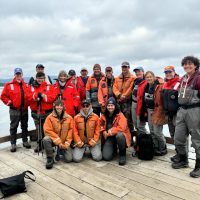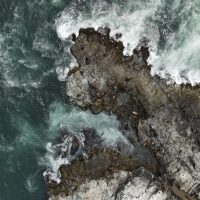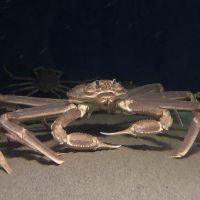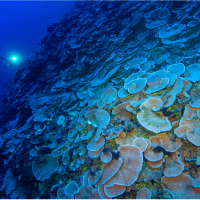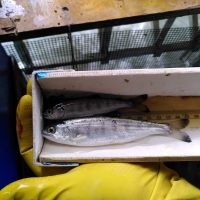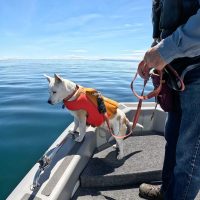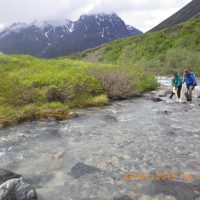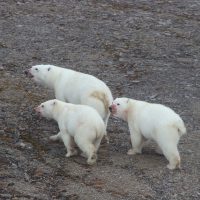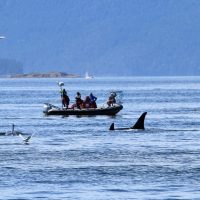Filter Results
UW President and College of the Environment Dean visit the Alaska Salmon Program
In a special update from the field, the Alaska Salmon Program shared their excitement at showing University of Washington President, Ana Mari Cauce, and College of the Environment Dean, Maya Tolstoy, around the field camps in Alaska. The Alaska Salmon Program has been running for more than 75 years, conducting research and providing hands on learning for UW students.
“We had a lot of fun showing UW President Ana Mari Cauce and UW College of the Environment Dean Maya Tolstoy why Bristol Bay is such a special place.
Answering global seafood trade questions during hackathon-style event
During a multi-day workshop organized by SAFS Assistant Professor Jessica Gephart, nine researchers working on projects related to the seafood trade got together for a hackathon-style research event. The overarching goal was to facilitate use of the ARTIS (Aquatic Resource Trade in Species) database by providing support and answering questions about the data.
Read moreFrom California to Canada: using drones for marine research
During the summer, UW Marine Biology senior, Ashley Rendon, is working with the Marine Landscape and Ecology Lab, led by Professor Corey Garza at SAFS. Using drones, Ashley has been surveying pinniped distribution along the California coastline and mapping the intertidal zone in British Columbia.
Read moreWhere do people fish and why? Exploring human behavior in Alaska fisheries
How do people make the decision on where they fish? What factors influence human behavior in fisheries? Terrance Wang is exploring the answers to these questions during his PhD research at SAFS. Fisheries management is an important process across the world, informing international and regional decisions on fishing locations, type of catch, methods used, and more.
Read moreA 3D view of ocean conservation and fishing activities
In recent years, there has been a global push to expand marine conservation efforts, but the quality of the implemented conservation network has often been neglected in favor of quantity. In a new paper published in Nature Communications, Juliette Jacquemont tackles one of the limitations of marine spatial planning by conducting the first global assessment of the 3D distribution of fishing activities and conservation coverage.
Read moreAre wild salmon following hatchery salmon? Testing the Pied Piper hypothesis
Ever heard of the Pied Piper? What about in the context of fisheries research? Taking the concept embodied by the Pied Piper story of strong but delusive enticement, Maria Kuruvilla applied it to hatchery fish and wild salmon in three Washington State rivers during their migratory journey downriver.
Read moreCanines for conservation: Southern Resident killer whale research
Alongside two student researchers from her lab, SAFS Assistant Professor Amy Van Cise has been out on the Puget Sound for a few days conducting killer whale research. Working with a team comprised of UW students, Wild Orca, and San Diego Zoo Wildlife Alliance, they’re assisted in locating fecal samples from the whales by Wild Orca’s poop-sniffing dog, Eba.
Amy Van Cise, with student researchers Sofia Kaiaua and Mollie Ball, were aboard the Wild Orca boat with Research Director Dr.
Examining the gap between ecological science and environmental management
Working for more than 15 years in Alaska’s Bristol Bay region, SAFS PhD student Sarah O’Neal, recently published a new paper in BioScience examining the gap between ecological science and environmental management. Sarah’s article focuses on indirect ecological effects and how these are often defined differently in regulatory decisions.
Read moreSAFS hosts 20th working meeting of the Polar Bear Specialist Group, co-chaired by Kristin Laidre
A meeting of the IUCN/SSC Polar Bear Specialist Group (PBSG) was held at SAFS on 10-14 June 2024, co-chaired by Professor Kristin Laidre.
Read moreBest practices in marine mammal research: developing a toolkit for sample collection and preservation
Over the last two decades, there has been huge growth in the availability of different ‘omics methods used to study marine mammals. A new paper published in Marine Mammal Science, involving 19 scientists from around the globe, has laid out best practices for collecting and preserving marine mammal biological samples in the ‘omics era.
Read more